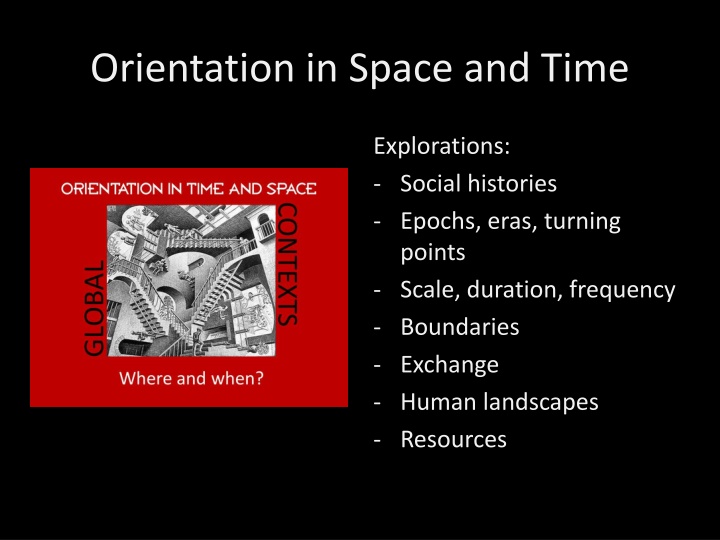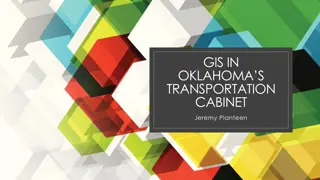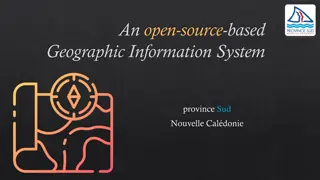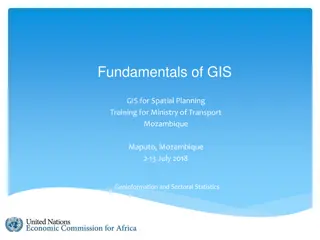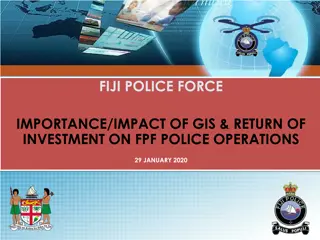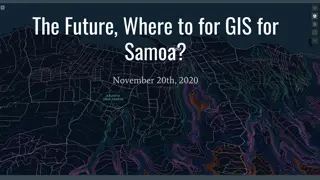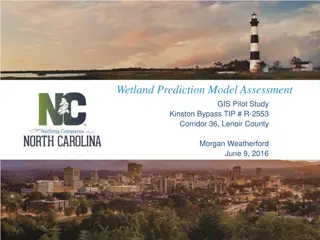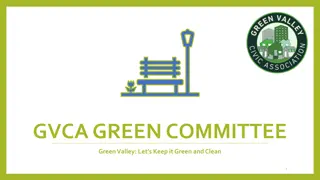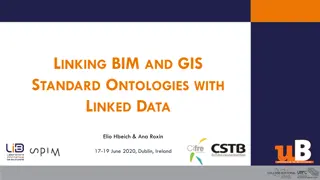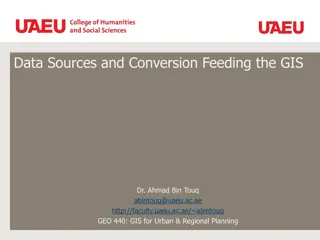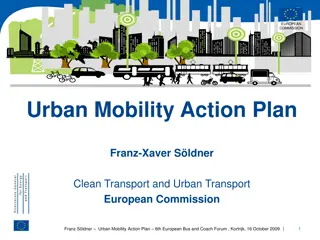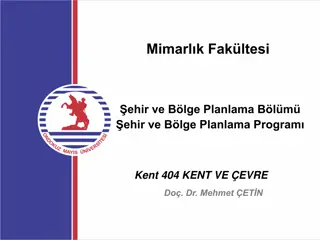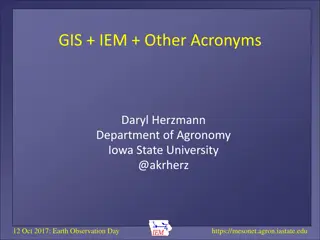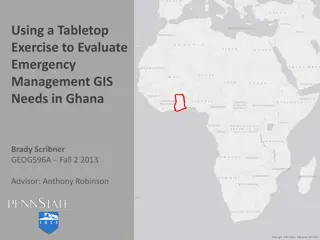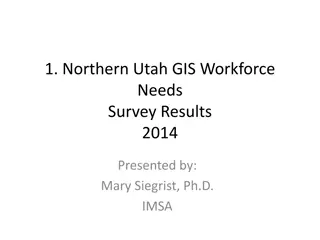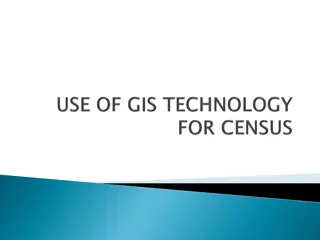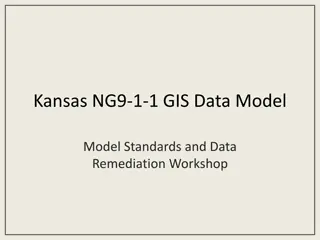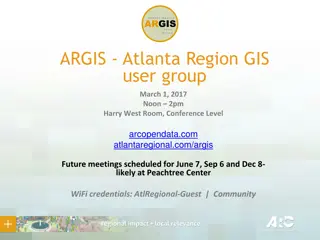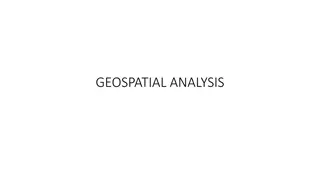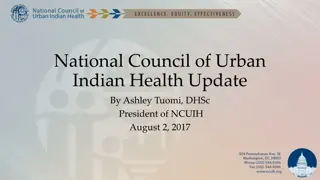Urban Green Space Assessment Using GIS Analysis in Kutahya
Using Geographic Information Systems (GIS) analysis, this study assesses urban green space accessibility in Kutahya. The research focuses on evaluating bioclimatic comfort, mapping potential planning for bioclimatic comfort using GIS in Aydin, evaluating Ilgaz mountain national park's recreation potential, and analyzing the sustainability of urban coastal area management in Cide. Furthermore, the study evaluates the sustainable tourism potential of a protected area for landscape planning in the ancient city of Pompeipolis in Kastamonu. Various case studies highlight the importance of sustainable development, environment, and tourism planning in different regions of Turkey.
Download Presentation

Please find below an Image/Link to download the presentation.
The content on the website is provided AS IS for your information and personal use only. It may not be sold, licensed, or shared on other websites without obtaining consent from the author.If you encounter any issues during the download, it is possible that the publisher has removed the file from their server.
You are allowed to download the files provided on this website for personal or commercial use, subject to the condition that they are used lawfully. All files are the property of their respective owners.
The content on the website is provided AS IS for your information and personal use only. It may not be sold, licensed, or shared on other websites without obtaining consent from the author.
E N D
Presentation Transcript
Orientation in Space and Time Explorations: - Social histories - Epochs, eras, turning points - Scale, duration, frequency - Boundaries - Exchange - Human landscapes - Resources
Fairness and Development Explorations: - Democracy, politics, government and civil society - Inequality - Human Development - Rights, laws, civic responsibility - Justice and peace - Power and privilege - Authority, security and freedom
Scientific and Technical Innovation Explorations: - Systems, models, methods - Adaptation and progress - Opportunity, risk, consequences - Modernization, industrialization - Digital Life, virtual environments - Biological Revolution
Globalization and Sustainability Explorations: - Markets, commodities - Human impact on the environment - Commonality, diversity and interconnection - Consumption, conservation, natural resources and public goods - Urban planning
Identities and Relationships Explorations: - Competition, cooperation - Self esteem, status - Physical and Social development - Moral reasoning - Ethical judgment
Personal and Cultural Expression Explorations: - Artistry, craft - Products, systems - Social constructions or reality, philosophy - Abstract thinking - Entrepreneurship, practice and competency
How do I choose a Global Context? Look at each and ask: - Why re we engaged in this inquiry? - Why are these concepts important? - Why is it important for me to understand? - Why do we care about this topic? Action: Reflect on the unit you brought with you today which Global Context would you choose? Once you select it discuss it with the person next to you.
Why should students think conceptually? New York Times Article Action: Think about a way in which creativity has shaped a concept within you. (Thaggard s Days of the Week Example)
There are 16 Key Concepts in the New MYP They are shared by ALL Courses!!!! Form Global interactions Identity Logic Perspective Relationships Time, place and space Systems Aesthetics Change Communication Communities Connections Creativity Culture Development
What key concept would you use to teach The civil rights movement Linear equations Shading (visual art) DNA Existential literature Play recognition in athletics Formal nouns and pronouns in World Language Action: Look at your Unit and the definitions of each Key Concept. Pick 3 that you think best fit what you want to promote with this unit. Open discussion/reflection on your selection
How do Key Concepts help learning? Abstract Create Interconnections Create higher-order thinking skills Helps students connect facts and topics Creates intellectual synergy (Erickson2007)
Related Concepts Tailored for each course Lead to deeper understanding of specific course areas Provide a more detailed means of exploration This list is just a start students and teachers are free to add their own related concepts as they determine their applicability Action: Look in your course guide and locate your Related Concepts. Choose 3 that you feel apply to your MYP Unit. Then, create your own concept and write about it in the During Teaching portion of your reflection section.
